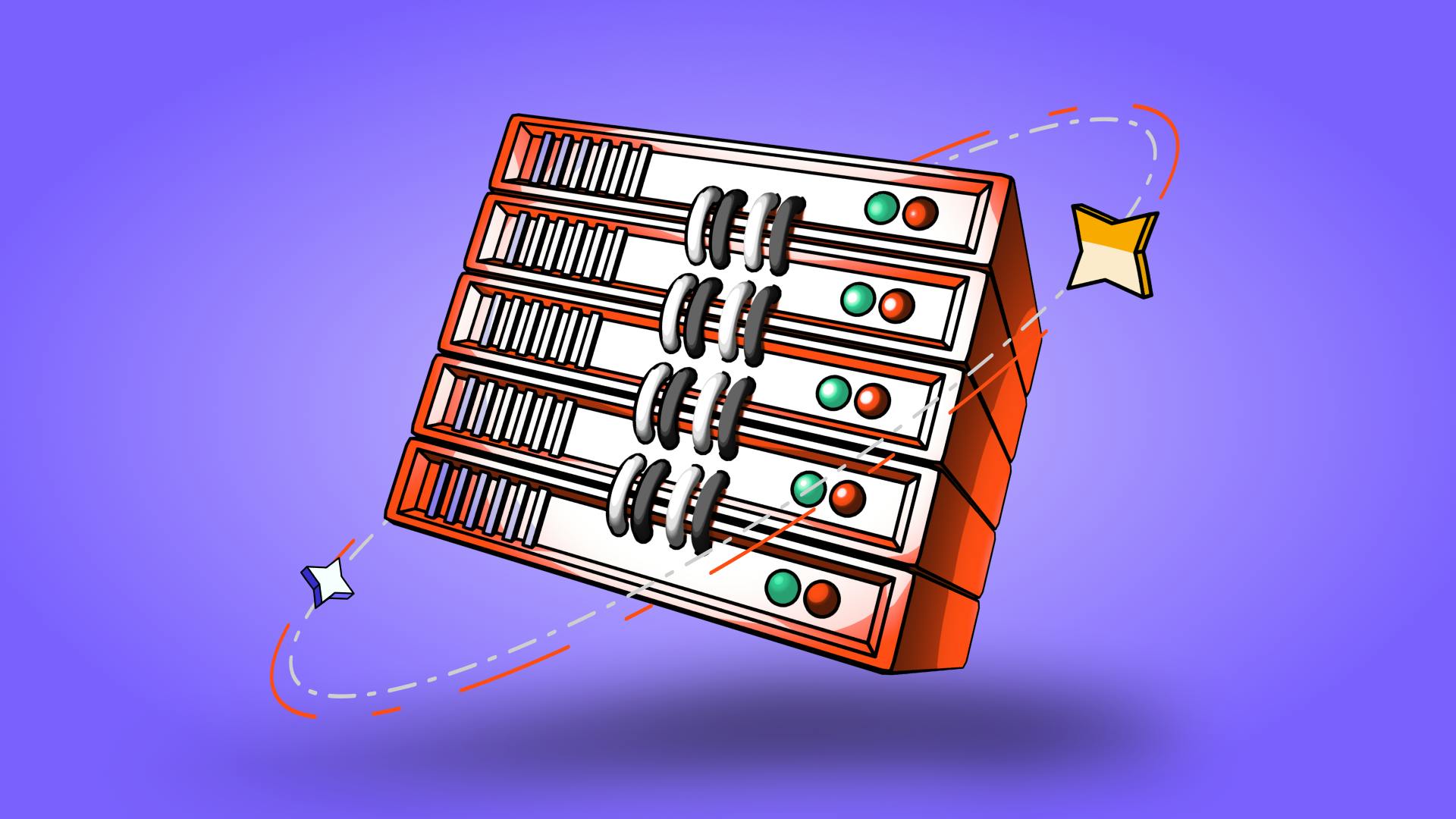Decentralized File Storage Solutions: IPFS & Filecoin
December 5, 2025

by Coinmetro Editorial Team
December 5, 2025
Decentralized file storage distributes data across multiple physical locations, often managed by different entities. Unlike traditional file storage, which relies on centralized servers, decentralized storage uses a network of peer-to-peer users. Each participant on the network owns a portion of the overall data, creating a resilient ecosystem where information is less vulnerable to attacks, failures, or censorship. This method enhances security and privacy, reduces downtime, and can lower storage costs by eliminating central data centers.
IPFS (InterPlanetary File System) and Filecoin are two significant technologies in decentralized storage. IPFS changes how data is organized and accessed on the web. It uses a peer-to-peer protocol to store and share data in a distributed file system. IPFS allows files to be stored without relying on a single point of failure, enhances the efficiency of data delivery across the globe, and keeps content permanent and unalterable once added.
Filecoin, developed by the creators of IPFS, acts as a financial incentive layer on top of IPFS. It is designed to ensure that files stored using IPFS are kept safely over time. Filecoin enables users to rent out their excess storage space in a marketplace setting, compensating them with Filecoin tokens. This approach secures file storage and offers a practical solution to utilize unused storage capacity effectively.
Both technologies aim to improve the web's structure by making data storage more robust, efficient, and decentralized. Their development highlights a shift towards giving users more control over their information and reducing reliance on centralized platforms that can act as single points of failure.
As previously mentioned, the InterPlanetary File System, commonly known as IPFS, is a protocol and network designed to create a peer-to-peer method of storing and sharing hypermedia (a set of interconnected and interlinked multimedia elements) in a distributed file system. Created by Juan Benet, IPFS was first introduced in 2015 to make the web faster, safer, and more open. It connects all computing devices with the same system of files, allowing for the decentralized storage and access of websites, files, apps, and data.
IPFS incorporates several distinct features:
Decentralized Nature: Instead of storing files on a central server, IPFS stores data across a network of nodes, which reduces the reliance on single points of failure and decreases the risks associated with data being held centrally.
Peer-to-Peer Protocol: Files are distributed across a global network of nodes. IPFS uses a network layer to connect these nodes, which can then query one another for files. The content-addressable blocks of data form a blockchain-like structure.
Content-Addressable Storage: Each file and all the blocks within it are given a unique fingerprint called a cryptographic hash. IPFS removes duplications across the network and retrieves files based on their content, not their location, which can lead to more efficient data retrieval.
Using IPFS offers several benefits:
Faster File Retrieval: By retrieving files from the nearest node rather than a central server, IPFS reduces loading times.
Redundancy: Data stored on IPFS is distributed across multiple nodes, which ensures that even if some nodes are offline, the internet and applications still function.
Resistance to Censorship: The decentralized nature of IPFS means that content cannot easily be censored by governments or organizations, as there is no central point of control.
Despite its advantages, IPFS also faces several challenges:
Data Persistence: If only a few nodes store the data and they go offline, the data might become inaccessible unless actively pinned or hosted by enough nodes.
Complexity and User Experience: The peer-to-peer system can be complex for users to understand and interact with compared to traditional web services.
Scalability: Managing and searching a rapidly growing volume of data across a distributed network can lead to performance issues as the system scales.
IPFS represents a significant shift in how data is stored and accessed, aiming to address many of the inefficiencies of the traditional internet. However, like any technology, it must overcome various technical challenges to achieve widespread adoption.
Filecoin is a decentralized storage network that incentivizes the storage of files. Participants earn Filecoin tokens (FIL) by providing storage capacity and retrieving data. Launched by Protocol Labs after a significant initial coin offering in 2017, Filecoin aims to create a more robust and efficient digital storage economy.
Filecoin enhances IPFS by adding a financial incentive layer. While IPFS allows decentralized storage and accessing files without a built-in economic system, Filecoin monetizes the network's storage capabilities. This incentivization encourages more users to offer unused storage space, thus expanding the network's capacity and reliability.
Blockchain-Based Incentive Structure: Filecoin uses blockchain technology to create a market for data storage and retrieval. Users pay to store their files, and storage providers earn tokens as compensation.
Proof of Storage Mechanisms: It employs proof-of-replication and proof-of-spacetime to ensure that data is stored correctly and securely over time.
Storage Marketplace: Filecoin features a marketplace where users can negotiate prices and capabilities, allowing for competitive and dynamic pricing based on supply and demand.
Security: The cryptographic proofs used by Filecoin ensure that data is stored securely and remains unaltered without permission.
Incentivization: By financially rewarding participants, Filecoin motivates more users to join the network, which diversifies and increases storage options.
Scalability: As demand for storage increases, the network dynamically scales, with more users incentivized to provide additional storage.
Complexity of Participation: Joining the network as a storage provider requires significant initial hardware investment and technical expertise.
Market Volatility: The price of storage and the value of Filecoin tokens can fluctuate widely, influenced by market dynamics.
Initial Adoption Barriers: Despite its potential, the requirement for more substantial initial investments and the complexity of its technology pose challenges to widespread adoption.
Filecoin proposes an innovative approach to decentralized storage, linking it with economic incentives that could revolutionize how we store and access data globally. However, its success depends on overcoming these challenges and fostering a robust, active user base.
IPFS and Filecoin share a foundational relationship but serve different purposes with distinct technical approaches. IPFS is a protocol for peer-to-peer sharing and accessing files across a distributed network. It stores data in a decentralized way, using a hash table, and retrieves content by these unique hashes rather than locations, which enhances speed and resilience. On the other hand, Filecoin operates as a layer on top of IPFS, focusing on providing economic incentives to those who store files. It introduces blockchain technology to manage transactions and relies on complex proofs, such as proof-of-replication and proof-of-spacetime, to secure and verify the continued data storage.
IPFS is ideal for: Content distribution networks to decrease server load and increase content availability, collaborative projects where version control is crucial, and applications that need to operate entirely or partially offline.
Filecoin is preferable for: Long-term data storage solutions where data integrity and availability are monetized, backup services for businesses or individuals seeking decentralized security, and developers requiring large data storage without maintaining their own storage infrastructure.
IPFS generally incurs lower costs as it does not involve transaction fees or necessitate participation in a marketplace; it is essentially free if you provide your own storage infrastructure. However, reliance on community nodes without incentives can affect data availability. Filecoin, however, operates on a marketplace where storage and retrieval are exchanged for Filecoin tokens, potentially increasing operational costs but providing a more reliable and persistent storage solution suitable for larger-scale operations that can afford and justify the expense.
Speed: IPFS can deliver high speeds for data retrieval if the content is popular and widely cached across its network, though speeds can vary significantly. Filecoin's performance depends more consistently on the network's overall health and the mechanisms of its marketplace.
Efficiency: IPFS is highly efficient in distributing content across a vast network with minimal redundancy. Filecoin adds an extra layer of efficiency in how storage is utilized economically.
Reliability: While IPFS provides a robust protocol for accessibility, Filecoin ensures data reliability through contractual and financial commitments backed by cryptographic proofs.
This comparative analysis highlights that while both IPFS and Filecoin utilize similar foundational technologies, they are optimized for different use cases based on their technical, economic, and operational characteristics. Each has its strengths and might be more suitable depending on the specific requirements of the user or enterprise.
Storj is a decentralized cloud storage network that offers end-to-end encrypted storage services. In a similar fashion to IPFS, Storj distributes data across a global network of independent nodes. These nodes are operated by individuals and entities who rent out their unused disk space and are compensated with STORJ tokens. Storj employs a shard technology that divides files into smaller, encrypted pieces, ensuring that no single node holds a complete copy of a client's file. This approach enhances security and privacy as the data becomes resistant to tampering and cyber threats.
Sia is a decentralized storage platform that operates on a blockchain network. It differentiates itself by focusing on low-cost solutions for cloud storage and allowing users to rent storage space from one another. Like Storj, Sia encrypts and distributes your files across a network of peers. Still, each contract on the network is also stored on a blockchain, ensuring further security and transparency in the storage transactions. Hosts on Sia must keep the files for a predetermined amount of time and periodically prove they still possess the data to the network, ensuring reliability and data integrity.
Both Storj and Sia offer compelling alternatives to traditional cloud storage services by removing central points of control and failure, enhancing user privacy and reducing costs. These platforms leverage blockchain technology to create a more secure and distributed internet infrastructure, promoting a shift from centralized online services to decentralized and autonomous networks.
Both IPFS and Filecoin continue to evolve with ongoing innovations aimed at improving scalability, reliability, and user-friendliness. IPFS developers are working on enhancements like better content routing and more efficient publish-subscribe protocols, which could significantly speed up the network. Meanwhile, Filecoin is enhancing its storage proof mechanisms and expanding its network to include more reliable retrieval miners, making the system not only a place to store data but also an active market for data retrieval. These advancements suggest a strong trajectory towards more integrated and dynamic decentralized storage ecosystems.
The adoption of decentralized storage technologies like IPFS and Filecoin is growing, particularly among sectors that value data sovereignty and censorship resistance, such as media and journalism, healthcare for secure medical records, and academia for large data storage. As concerns over data privacy and control continue to rise globally, more businesses and individual users are exploring decentralized options. This shift is likely to impact the future landscape of data storage, pushing more innovations and possibly leading to the widespread use of decentralized storage solutions as a standard practice for data management. The integration of blockchain technology and decentralized storage is also seen as a key trend that could redefine how data is transacted and managed across the internet.
This forward-looking perspective suggests a bright future for technologies like IPFS and Filecoin, as they not only address current issues of privacy and centralization but are also paving the way for a more robust and user-empowered digital infrastructure.
Join the Coinmetro community on Discord and Telegram, where forward-thinking traders and investors gather to share insights, explore new opportunities, and dive deep into cryptocurrencies. Should you need any help, please contact our world-class Customer Support Team via 24/7 live chat or email at hello@coinmetro.com.
To become a Coinmetro user today, Sign Up now, or head to our new Exchange if you are already registered to experience our premium trading platform.
Tags
Related Articles

Regulatory Sandboxes: Fostering Crypto Innovation Within Legal Frameworks
The cryptocurrency industry’s fast rise fuels an important debate. Innovation aims to transform finance, enhancing speed and access. Yet, regulators…
5m

Crypto Options Trading: Strategies and Market Insights
Cryptocurrency markets have rapidly expanded beyond simple buying and selling. One of the most significant developments has been the rise of…
6m

The Rise of Social-Fi: Blending Social Media with Decentralized Finance
In recent years, social media and finance have started to merge, creating Social-Fi. This concept blends the engagement of social platforms with…
6m

DeFi Insurance Platforms to Watch in 2024
Decentralized Finance (DeFi) insurance addresses the growing need for insurance against hacks, smart contract failures, and other DeFi-related risks.…
7m